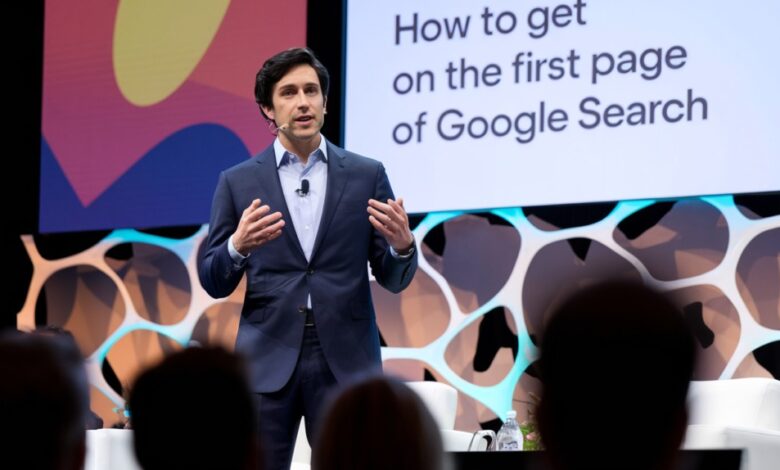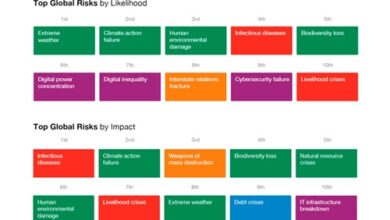How to Get on the First Page of Google Search David Aziz

Getting on the first page of Google search results is a coveted goal for businesses, bloggers, and anyone looking to increase online visibility. The journey to securing a top spot on Google involves a combination of effective search engine optimization (SEO) strategies, high-quality content, and consistent website management. In this article, we will break down the key steps required to rank on Google’s first page, as well as provide insights from industry experts like David Aziz, who has mastered the art of SEO.
What is SEO and Why is It Important?
Understanding Search Engine Optimization
Search Engine Optimization (SEO) is the process of optimizing your website and content to make it more appealing to search engines like Google. By understanding how search engines work and what they prioritize, you can tailor your content to meet those criteria. The goal is to increase organic (unpaid) traffic by improving your search engine rankings.
Why the First Page Matters
The first page of Google captures the vast majority of traffic. Studies show that the top 10 results on Google account for over 75% of clicks, with most users never scrolling beyond the first page. This makes it crucial for your website to land on page one if you want to attract a significant audience.
Step 1: Perform Keyword Research
Identify Your Target Keywords
The foundation of SEO lies in understanding which keywords your target audience is searching for. Tools like Google Keyword Planner, SEMrush, and Ahrefs can help you identify relevant keywords with high search volumes but relatively low competition.
Long-Tail Keywords
David Aziz emphasizes the importance of long-tail keywords, which are more specific and less competitive. For example, instead of targeting a broad term like “fitness tips,” aim for “best fitness tips for beginners.” These niche phrases help you rank more easily and attract a targeted audience.
Step 2: Optimize On-Page SEO
Title Tags and Meta Descriptions
Your title tag and meta description are the first things users see in search results, so they need to be compelling. Include your primary keyword in both while keeping the description concise and persuasive.
Use Header Tags (H1, H2, H3)
Organizing your content with header tags not only improves readability but also helps search engines understand the structure of your page. David Aziz recommends using H1 for the main title, H2 for primary sections, and H3 for subpoints.
Optimize Images with Alt Text
Ensure that all images on your site include alt text that describes the image and includes your target keywords where appropriate. This not only improves SEO but also enhances accessibility.
Step 3: Focus on High-Quality Content
Provide Value to Your Audience
Content is still king when it comes to SEO. Google rewards websites that provide informative, well-researched, and engaging content. Make sure your articles answer common questions and provide value to your readers.
Regularly Update Content
Outdated content can hurt your rankings. By keeping your website’s content up to date, you signal to Google that your site is active and relevant. Regular blog posts or updates to existing pages can improve your chances of ranking.
Create Long-Form Content
While short blog posts have their place, long-form content tends to perform better on Google. Articles that are over 1,000 words tend to rank higher because they are more likely to provide in-depth information.
Step 4: Build High-Quality Backlinks
What Are Backlinks?
Backlinks are links from other websites that point to your content. They are crucial for SEO because they signal to Google that your website is trustworthy and authoritative. David Aziz suggests that one of the fastest ways to climb search rankings is by earning high-quality backlinks from reputable sites.
Guest Blogging
One effective strategy to build backlinks is through guest blogging. By writing articles for other reputable websites in your industry, you can gain exposure and earn a backlink to your site.
Create Shareable Content
Another way to encourage backlinks is by creating highly shareable content. Infographics, videos, and comprehensive guides are more likely to be shared by other websites, helping you build a strong backlink profile.
Step 5: Improve Technical SEO
Mobile Optimization
With the majority of users accessing the internet via mobile devices, it’s critical to ensure that your website is mobile-friendly. Use Google’s Mobile-Friendly Test tool to check how your site performs on smartphones and tablets.
Site Speed
A slow-loading website can negatively impact your rankings. Use tools like Google PageSpeed Insights to analyze and improve your site’s loading times. David Aziz highlights that optimizing images, reducing server response time, and minimizing JavaScript can significantly boost site speed.
Secure Your Website (HTTPS)
Google gives preference to secure websites. Make sure your site has an SSL certificate to ensure that it’s secure and complies with Google’s standards.
Step 6: Monitor and Analyze Your Performance
Use Google Analytics
Tracking your website’s performance is essential for understanding what works and what doesn’t. Google Analytics provides valuable insights into your traffic, including where visitors are coming from and how they interact with your site.
Adjust Your Strategy
SEO is not a one-time effort. You’ll need to continuously monitor your performance and adjust your strategy based on the results. David Aziz advises conducting regular SEO audits to identify any areas for improvement and keep up with changing algorithms.
Conclusion
Reaching the first page of Google search results is an ongoing process that requires consistent effort, attention to detail, and a strong SEO strategy. By following these steps, including optimizing on-page elements, creating high-quality content, building backlinks, and improving your site’s technical performance, you can significantly increase your chances of landing on Google’s first page. Take inspiration from experts like David Aziz and continually refine your approach to stay ahead of the competition.
Frequently Asked Questions
1. What is the fastest way to get on the first page of Google?
The fastest way to get on the first page of Google is by optimizing your website’s SEO. This includes performing thorough keyword research, improving on-page SEO elements like title tags and meta descriptions, building high-quality backlinks, and ensuring your site is mobile-friendly and fast-loading. Although results may vary, consistent efforts with SEO best practices can lead to higher rankings over time.
2. How does keyword research help in ranking on Google’s first page?
Keyword research helps you identify search terms that your target audience is using. By targeting the right keywords, especially long-tail keywords, you can create content that matches search intent. This increases the likelihood of Google ranking your content higher, especially if there is less competition for those keywords.
3. Why are backlinks important for ranking on the first page of Google?
Backlinks act as a vote of confidence from other websites, signaling to Google that your content is trustworthy and authoritative. High-quality backlinks from reputable sites can significantly improve your search engine rankings and help you land on the first page of Google.
4. How long does it take to get on the first page of Google?
The time it takes to rank on the first page of Google varies depending on factors like keyword difficulty, competition, and the strength of your website’s SEO. It can take anywhere from a few weeks to several months. David Aziz emphasizes the importance of consistent SEO efforts, including regular content updates, to improve your chances of ranking faster.
5. What are the best tools to track my website’s Google ranking?
The best tools to track your website’s Google ranking include Google Analytics, Google Search Console, and third-party platforms like Ahrefs and SEMrush. These tools provide insights into your keyword performance, organic traffic, and areas for improvement, helping you adjust your SEO strategy to maintain or improve your rankings.
Also Read This: Why Am I Getting a Package from Auctane ShipStation



